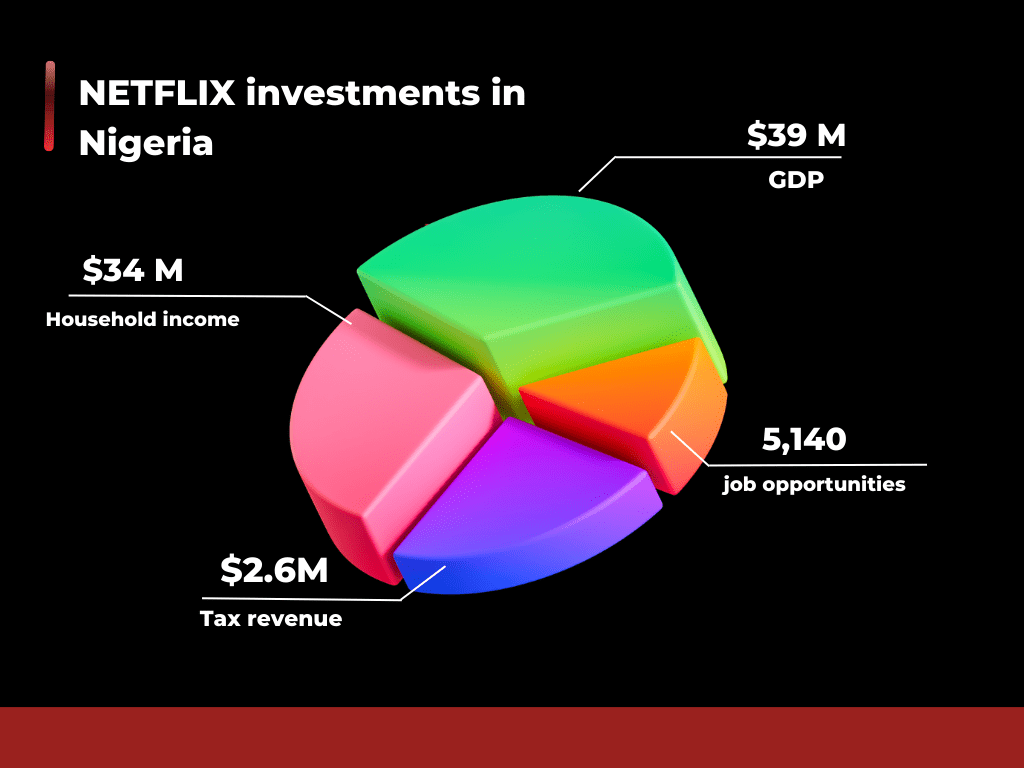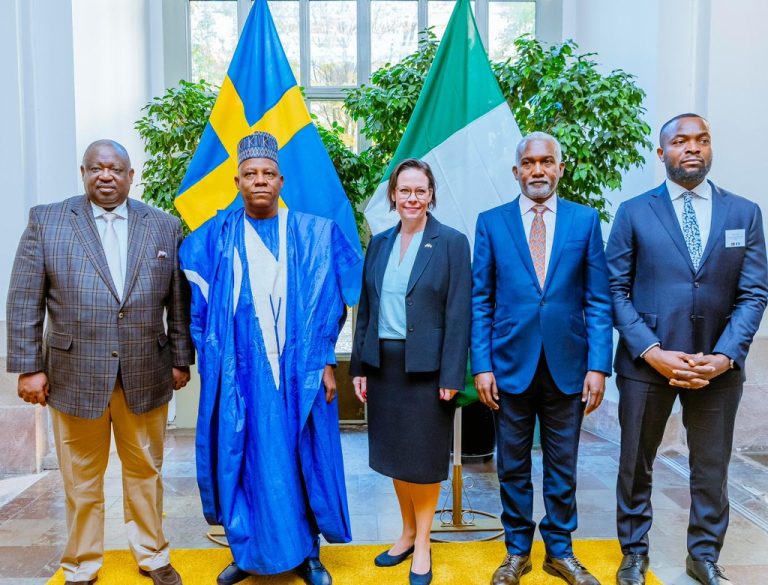$23.6M Investment
283 Titles, 3 Originals.
Netflix has published a report outlining its significant socio-economic involvement on the African continent just six years after entering the African entertainment sector. The performance of Netflix in its three primary markets, South Africa, Nigeria, and Kenya, was highlighted in the study.
Also, it stated that between 2016 and 2022, Netflix invested $175 million in these markets or around $29 million each year of operation. Most of this investment ($125 million), which went toward 173 licensed films and 16 unique productions, went to South Africa.
Netflix invested $23.6 million in Nigeria to license 283 titles and commissioned three originals. The remaining $26.4 million is presumed to have been spent on licensing content from the rest of the continent, including two originals in Kenya, supporting various capacity-building initiatives, and on other operational or overhead costs for their Africa operations.
According to the report, Netflix’s presence and activities in the Sub-Saharan African region considerably affect four socioeconomic impact pillars. including funding economic activity that produced over 44 million dollars in tax revenue, over 12,000 new employment, 218 million dollars added to the GDP, and 200 million dollars more in higher household income.
The Nigerian Nollywood industry getting a new facelift
With a projected annual growth rate of 8.6% and a compound annual growth rate (CAGR) of 19.3% from 2018–2023, according to PwC Global Entertainment and Media Outlook for 2020–2024, Nigeria’s media and entertainment industry has the potential to become the nation’s largest export. However, in its early stages, the industry was very different from what we see today.
In the late 1990s and the early 2000s, the movie business still had trouble attracting devoted viewers. Without a doubt, the industry was already established, but it took a few years for it to experience a significant increase in social interaction due to the strong resurgence of cinemas, the introduction of televisions, and the production of films on VCD (video compact discs).
Given that they were located in well-known and busy malls, these theatres offered consumers a modified form of entertainment beyond watching movies and social connection. Fast-forward to the late 2000s, when technology came through, phones became widely used, and internet usage began to rise. The entertainment industry, like other sectors, wanted a piece of the technical gains that these developments brought. Of course, these have helped industries upgrade immensely.
The cinema industry apparently earned a record-breaking revenue of $1.72 trillion at the end of 2013, according to a report in the Guardian, despite the meagre financial backing that was at the time circulating in the sector. In 2016, Netflix made a tremendous leap of faith to explore the potential of the Nollywood sector.
The development of streaming services like Netflix, which has established itself as a major participant in the international entertainment market, has been one of the main drivers of Nollywood industry expansion up to this point and even beyond the local eyes to attract more global audiences.
However, it is unsure what the subscription numbers in Nigeria are as the company does not reveal its subscribers’ numbers for countries outside the US, but in 2019, TechPoint reported that Nigerian subscribers on the site are less than 50,000. However, according to QZ.com, the number of Netflix subscribers in Africa is projected to grow to 5.6 million by 2026.
Netflix’s contribution to Nollywood
Since entering the Nigerian Nollywood market in 2016, Netflix has committed $23.6 million to more than 250 locally-produced, co-produced, and commissioned video content. Blood Sisters, the first Nigerian Netflix original, achieved a significant milestone when it was ranked as one of the top 10 TV programs in the world by Netflix. According to a Pulse report, the series, which debuted on May 5, climbed to the ninth position with 11 million views in its first week.
Three additional noteworthy Netflix originals that have achieved considerable success and significant media attention are Far From Home, Shanty Town, and King of Boys. This has given the Nollywood industry more exposure and helped it gain a global audience while showcasing local content.
This shows that Netflix’s investment of more than USD 23 million has significantly impacted the Nigerian economy.

This investment has produced USD 2.6 million in tax revenue, USD 34 million in household income, and USD 39 million in GDP through direct, indirect, or expenditure effects on the economy. Overall, the economy helped over 5,140 jobs in the country.
These represent enormous victories for the sector. In addition to these production investments, the major streaming service has, over the years, led numerous initiatives to advance the industry in Nigeria. In 2021 and 2022, it worked closely with the Nigerian Film and Video Censors Board to support the government’s efforts to create efficient legislative and regulatory frameworks appropriate for digital entertainment.
Netflix and its challenges in Nigeria
While these signify growth for the streaming giant and the continent at large, some limitations have been obstacles along this pathway to success.
Lack of talent
If the Sub-Saharan African entertainment business wants to compete confidently in the global market, a vast treasure of talent must be unearthed. The report claims a lack of training and insufficient exposure to global prospects limit talent. However, working on a Netflix series gives regional creatives international visibility.
The financial considerations may prevent many talented people from participating in projects. This has caused the streaming giant to invest in workshops, training, and commitment pledges.
Financial constraint
Speaking of budgetary limitations: it has been reported that the government offers minimal assistance to the entertainment sector. Actor and former National Caretaker Committee Chairman of the Actors Guild of Nigeria (AGN) Steve Eboh bemoaned the lack of government support for Nollywood in an interview from 2019 that the Nigerian Tribune cited.
Although the report further explained that few countries offer financial support to filmmakers and TV producers, private funding is equally limited, diminishing the potential for high-quality productions.
These are some of the challenges that limit the industry from evolving even with Netflix’s support.


















+ There are no comments
Add yours